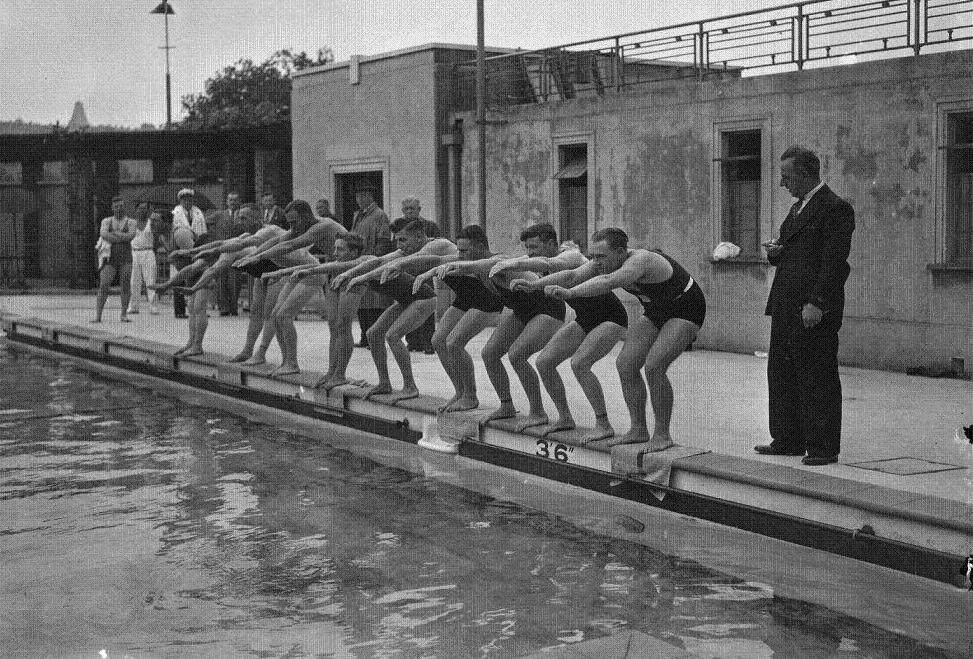Like the library, the public pool is an endangered species
In Hull, Newcastle and around the country these community assets face closure

When I swim, I use the intermediate lane. Without any real grace or zealotry, I move from A to B, up and down, until my pace slows and older people start surging past. Then I get out, nod to a lifeguard if I can see one, get changed and go home. Only recently did I notice how much pleasure I absorb from this Trappist routine.
The pleasure, I’ve come to think, is maybe three parts to do with the swimming itself. What provides the other seven parts, and what I really adore, is the place. It’s tremendous. Opened to the public in 1929, the main pool in Porchester Baths in West London stretches 30m, and its three lanes lie at the bottom of a dingy stone building with a curved roof window, a view of which can be enjoyed by those who backstroke.
In the early 1990s, there was a public spa attached too, and a largely Jewish community went there for regular schmiessing sessions – a Yiddish custom involving a sauna, a towel whip, and plenty of camaraderie. The spa was privatised and taken upmarket long ago, and more recently management of the pool has been transferred from Westminster council to a private leisure trust. Still, for Westminster residents, the pool is almost never closed, and the council arranges a discount that cuts the price of a visit from £6 to £2. The white pool-tiles have slightly browned, so – ignorance being bliss – I prefer to swim without contact lenses.
Pre and post-swim, you have the opportunity, or perhaps I should say the obligation, to observe a range of bodies naked and in close quarters. I do not go often enough to know anyone by name. There is a very old, bald white man who shuffles to the pool in flip-flops. There is a man of Arab heritage who likes to use the mostly forgotten hairdryer on his undercarriage. There is a man with what I can identify only as an African accent whose small son sequesters himself in various lockers and causes trouble for the duration of the change. There are healthy bodies, and less healthy ones. Some shoulders are stooped and others pulled right back. If you went back twenty years, I would have been there, in speedos, learning to swim. Eight years and I would have also been there swimming to heal an injury.
As of 2013, there are 220,000 private pools in the country and roughly 3,000 remaining public ones. Many of the latter face closure. Despite swim-in protests, Newcastle’s city pool shut this year. The fate of one in Hull hangs in the balance. Like the public library, the public pool is something of an endangered species, and you cannot do much of a cost-benefit analysis on what one offers a community. For me and many others, however, the cost is small and the benefit what you might call incalculable.

Join our commenting forum
Join thought-provoking conversations, follow other Independent readers and see their replies